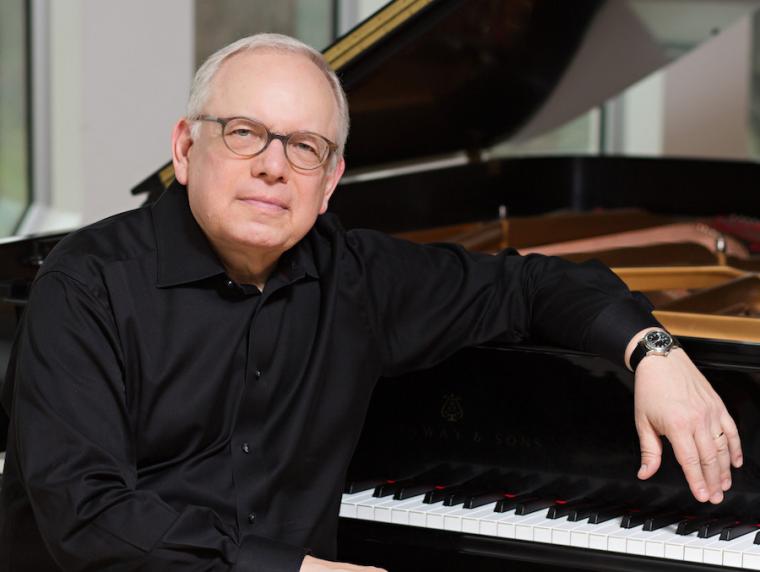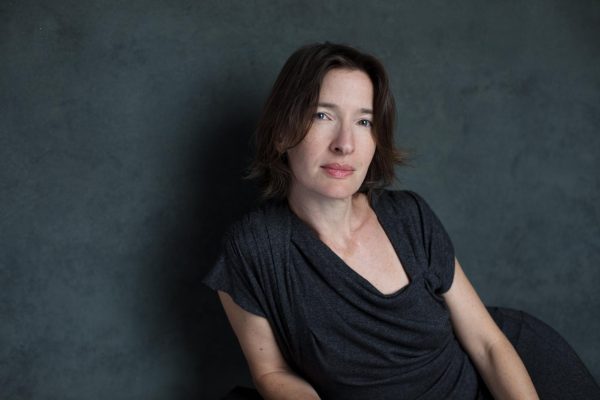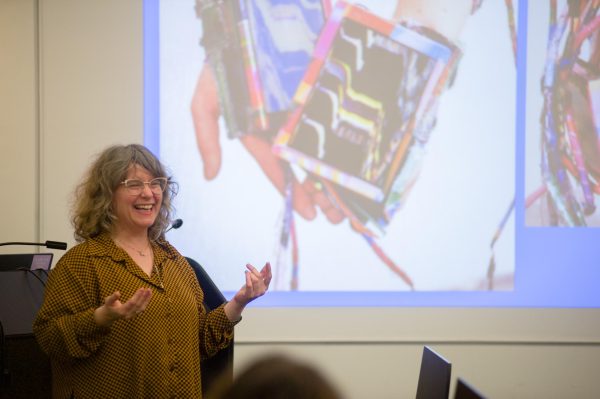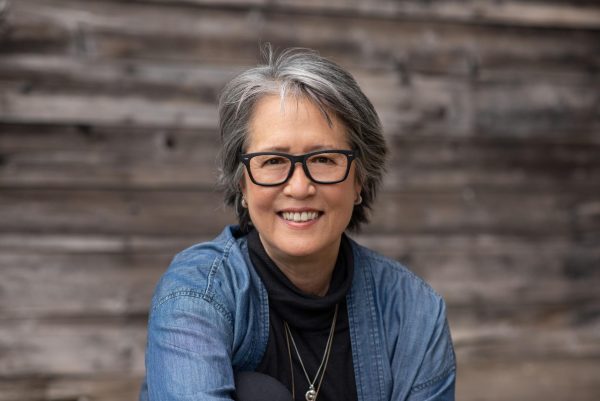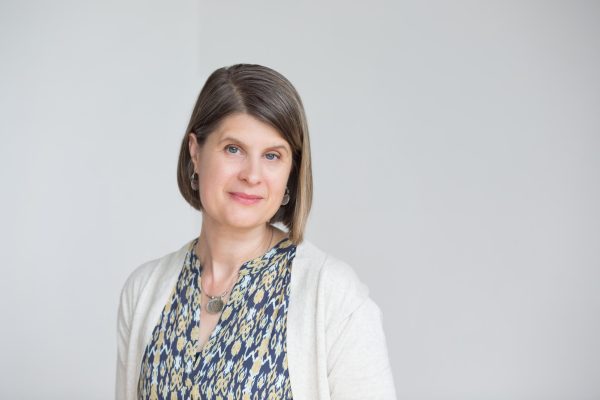Peter Takács, Professor of Piano
Courtesy of the Office of Communications
Peter Takács
The pandemic has been a particularly challenging time for practicing musicians. Professor of Piano Peter Takács is an expert on Beethoven and has performed and recorded his complete 32 Piano Sonatas. He sat down with the Review to talk about being a musician, as well as a teacher, during the pandemic, and how his perspective on music has changed with the circumstances.
This interview has been edited for length and clarity.
Has classical piano gained any new meanings for you during the pandemic?
Definitely yes. Because we’re more isolated these days — everybody’s quarantined or in some kind of pod — making music has become in some ways more meaningful. It’s a way of being absorbed in something profound and deep. So, it has actually become a more precious occupation during this time.
Have you learned anything new about yourself working through this time period?
I’ve had to get used to the fact that I’m not performing in public, so it’s a real reorientation of your motivation for what you do. A lot of what musicians do is because we want to perform for the public, we want to share our music and to have a sense of receiving something back for all the intense work that we do. When you think that way, you actually have to reevaluate why you’re passionate about this instrument. I think in some ways it’s made me value my work even more because it took away the public part of it. So, now it’s between me, my piano, and my scores.
As a performer, without any performance opportunities, which is global pretty much, you might come to a point of saying, “Why am I doing all this since I’m not playing for anybody?” And so I think the outcome of it is that I’ve come to appreciate just the sheer work of the music that I’m learning and playing. The other part of this whole thing is that there’s been such an increase in trying to figure out ways to communicate through the internet. I’m of the somewhat older generation. It’s not a natural medium for me, but I’ve had to learn how to use social media or other kinds of technologies to at least put my music out there remotely.
You’re a leading expert on Beethoven. Has his music in particular helped you make sense of this time period?
Of course! Beethoven’s been my companion for many years and every inspiration. His life story is incredibly heroic because he overcame a lot of adversity. I think he struggled with quite a few demons of his own, psychologically, and of course, he was a composer who lost his hearing, which was a very dramatic and tragic development. What inspires me about Beethoven is that he was able to transform adversity into his artistic vision.
I’ll give you a small example — in his early period, his piano is quite small, because they were still 18th-century instruments, and you can always sense that he was unhappy with the limitations of his instrument. He only went up to a certain note on either the bottom or the top. I always sensed this feeling that he wanted more. When the pianos became larger, which they did during his lifetime, he would expand his registers, he would go higher and lower. There was always a sense of striving to break down limitations and to go beyond tradition into new ways of thinking about music. I think his story is quite inspiring.
You think about something like his opera Fidelio, which was a very hard piece of work for him because he was not a very natural opera composer, but he put in some very idealistic thoughts about freedom and about justice and injustice. The hero is imprisoned and then he’s rescued by his wife, Leonore. There’s a great deal of emotion about the idea that he is being rescued by his beloved.
In many ways, he’s kind of the iconic classical composer, partly because of his human story of losing hearing and battling through illness and also battling through some difficult psychological barriers. There are parts of his music that have to do with fighting against implacable hearts; for example, fourth concerto, the second movement starts with the strings playing this very powerful Greek god-like music. Then a piano comes in and someone was sort of pleading for mercy, and it’s supposed to be about the Orpheus story. There’s this sense of the helpless, vulnerable human fighting against impossible odds. The beautiful part of that movement is by the end of it, the gods had been tamed, in a “the meek shall inherit the earth” thing. He was able to transform the cruelty into benevolence.
What kinds of values are most important for you to articulate to your students right now?
I think the most important thing is to passionately believe in the material that you’re working with and to believe that the music that we’re making is a treasure of human accomplishment. Keeping the general feeling of being involved in something really important and special. It’s not an easy profession that we’re involved in. When I went to school, there was no emphasis at all on networking or career development. These days, it’s pretty important to be versatile so that you can do many different things with the piano, including teaching, accompanying, just to have many skills that can help you develop a career of your own. And what I say to my students often, and I’m telling you now, is to keep a place that’s very pure in your heart for the music that we do that is separate from business concerns, separate from competition, separate from other people — just the very pure relationship of your heart to the music that you play.


